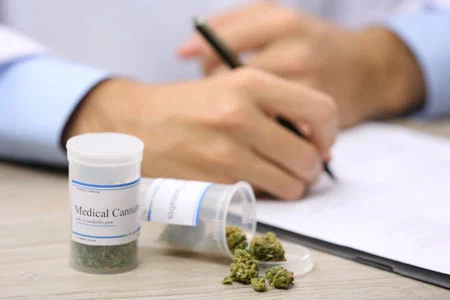Workplace Testing Implications of Legal Cannabis in Australia

The Federal Greens party in Australia announced that they would push to make cannabis or marijuana legal for all people over 18 years old.
This continues a topic of conversation that has been occurring in Australia for several years. A case made more pressing given the recent legalisation of cannabis in several states in the USA, and the recent legal changes to the status of medicinal cannabis.
Safework Health constantly monitors the advances in science and technology as well as the policy and regulatory framework for workplace drug testing. We always do our best to educate, inform and stimulate discussion in this dynamic area.
This commentary covers our point of view on an article published by the ABC by political reporters Matthew Doran and Lucy Barbour. It is titled Greens announce plan to legalise cannabis to take it ‘out of the hands of criminals and dealers’.
So, what would be the implications for workplace drug testing?
On one level, very little. Given that both Australian Standards (AS/NZS4308 and AS4760) require Cannabis to be tested – specifically the psychoactive component THC (tetrahydrocannabinol).
Both standards already mandate testing for a mix of drugs such as Cocaine and Methamphetamine, which are clearly illegal. The same goes for prescription-only drugs such as Opiates and Benzodiazepines.
So any drug and alcohol policy that requires adherence to these standards would have to continue to drug test for Cannabis regardless of any change in the legality of the drug.
Alcohol isn’t illegal either. Couldn’t we treat it the same as that?
But what of the moral argument that companies will be testing for – and potentially penalising workers for – a drug which would be legal to consume?
Well, currently almost all companies already do this for Alcohol. It is very rare to find a company that would allow workers to consume excessive amounts of alcohol on site and still declare themselves fit for work. Most especially in a safety-sensitive environment.
But of course, we have good tools for measuring the amount of alcohol present in a person’s body. The usual method being via a handheld breath alcohol detector.
So employers and employees can determine the maximum “safe” level of alcohol intoxication depending on the role (eg zero, 0.02% or 0.05% BAC).
So what’s the “safe” level of cannabis in regards to safety?
Short of a blood test, there is no truly accurate way of determining how much THC an individual has in their system at any given time. There is also the problem that THC and ethanol have very different characteristics in terms of their performance effects.
Small amounts of cannabis intoxication have similar results on safety tests as do much larger doses. This is true in the case of a simulated driving performance.
Subjects show substantial negative performance at very low doses. But they do not perform a great deal worse as the level of cannabis present increases.
Alcohol is very different in this regard though. An individual can display very few effects at low doses (such as 0.02% BAC). But performance gets progressively worse as their alcohol level increases.
So it’s not really a valid comparison, at least as far as the science of the drugs themselves is concerned.

What about medicinal cannabis? That’s already legal
It’s quite true that cannabis has been available by prescription in Australia for some months now. Most companies have dealt with this change by applying exactly the same criteria as they do with other prescription drugs. Any individual who has a confirmed positive result for, say a Benzodiazepines drug test, must produce their prescription for that drug.
Ideally, the employee will have also had a conversation with their prescribing GP, medical specialist or Pharmacist about the potential safety consequences of taking this medication. And if there is any further doubt, a company doctor or Occupational Physician can provide further input and advice.
Medical cannabis can be treated in exactly the same manner.
It seems unlikely in the short term that there will be any substantial changes to the legal status of Cannabis or any other currently illegal drugs.
Learn More
Contact us today for information on how we can keep your workplace safe from cannabis use and abuse.
